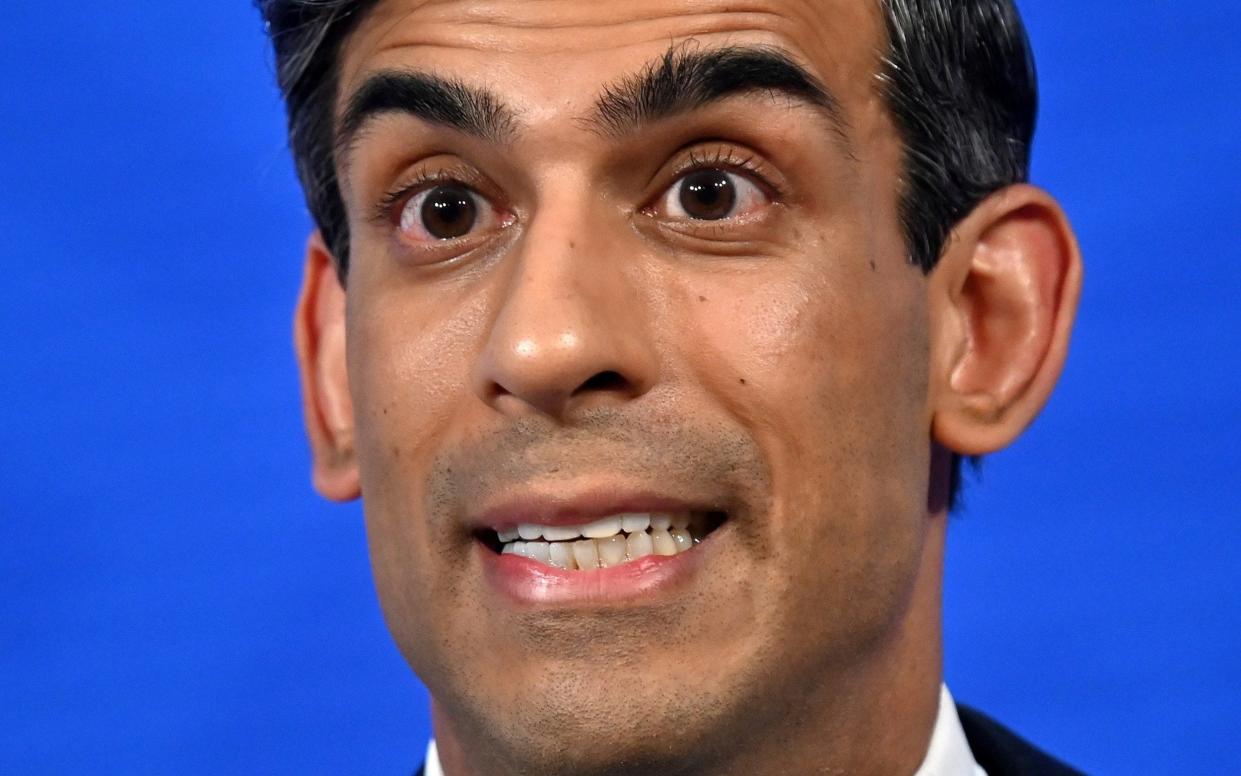Tories ‘face struggle to sell high tax burden at local elections’

- Oops!Something went wrong.Please try again later.
Tory activists may struggle to sell the high tax burden on the doorstep ahead of the local elections in May, the Financial Secretary to the Treasury has admitted.
Convincing voters of the need to reduce government debt before lowering taxes is likely to be a “difficult” conversation, Victoria Atkins said.
Ms Atkins said her advice to Tory campaigners challenged over high taxes while canvassing for votes would be to highlight Rishi Sunak’s progress on his five pledges.
Earlier this year, the Prime Minister promised to halve inflation, grow the economy, reduce debt, cut NHS waiting lists and pass new laws to stop small migrant boats crossing the Channel.
“On every single one of those promises we can see that the plans are in action and they are working,” Ms Atkins told The Telegraph. “And these promises are made precisely because we know these are the things that are worrying people.”
But she acknowledged that attempting to justify the high tax burden by reminding voters about the importance of reducing Government debt may be tough.
“Sometimes on the doorstep on a cold, wet, rainy afternoon, it may be difficult to have that conversation,” she said. “The truth is that if we are having to pay that interest debt... then that’s money we can’t spend on the public services we care about, or indeed we are not in a place that we can talk about tax cuts. So that’s why reducing debt is so important.”
Earlier this week, Mr Sunak told backbench MPs he had “no illusions how difficult the locals are going to be” according to one MP at a behind-closed-doors meeting of the 1922 committee.
Ms Atkins insisted the Tories were still the party of low tax despite the tax burden now being at its highest level since the Second World War.
Asked when taxes would come down, she said it would happen “when the conditions are right”, adding: “We very much want to see the economy grow. We’ve got to halve inflation – that actually is the best tax cut we can give families because we all know that inflation hurts all of us but it particularly hurts the poorest in society. ”
Households are about to be hit by a flood of bill increases that will leave families more than £1,000 worse off.
The beginning of April marks higher prices for water, energy, broadband, mobile contracts, council tax and NHS prescriptions as historically high inflation squeezes already stretched households.
Unlike last year, bill-payers will go without hundreds of pounds in government support to offset energy and council tax.
Ms Atkin was speaking to The Telegraph during a visit to the Brompton Bikes factory in Greenford, west London, the day after she was forced to defend the Government’s decision to legislate for a global minimum rate of corporation tax.
She came under fire from a series of senior Tory MPs who called it a “mad move” and urged her to strip out the relevant clauses from the Finance Bill.
Priti Patel, the former Home Secretary, was joined by several other backbenchers in attacking the Government over the measures, which will see the UK implement an international agreement preventing corporation tax from falling below 15 per cent.
Ms Patel has previously accused Jeremy Hunt, the Chancellor, of undermining Brexit by seeking to “rush ahead and surrender sovereign tax rights”.
MPs will vote on the Finance Bill when it returns to the Commons for committee stage next month. It is understood several Tory rebels are planning to register their frustration with the corporation tax agreement by abstaining.
However, Ms Atkin told The Telegraph: “I think we all acknowledge that the economy nowadays is very different to how it was even 15 years ago. We have these enormous, global corporations, some of which are able to invest in some pretty aggressive tax planning, basing themselves around the world depending on the tax rates being charged.
“And so what we’ve wanted to do, the worldwide community has wanted to make it a little fairer frankly for businesses and so we have this top-up tax.”
She added that there is an “enormous advantage” to the UK working “in unison” with other countries such as EU member states to implement the new tax “so that these giant multinational companies are contributing to our public services”.
Responding to the charge that the agreement on corporation tax undermined Brexit, Ms Atkins said that when Britain left the EU, it was “not saying we are never going to enter into another international agreement” again.

